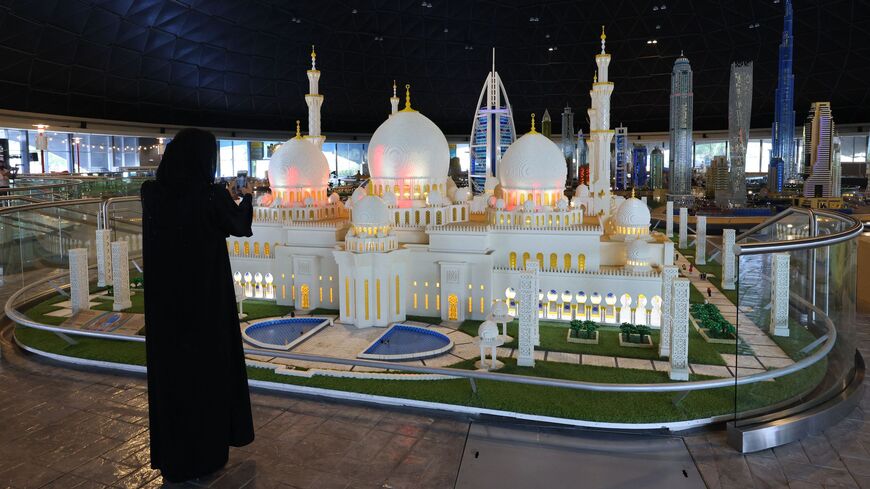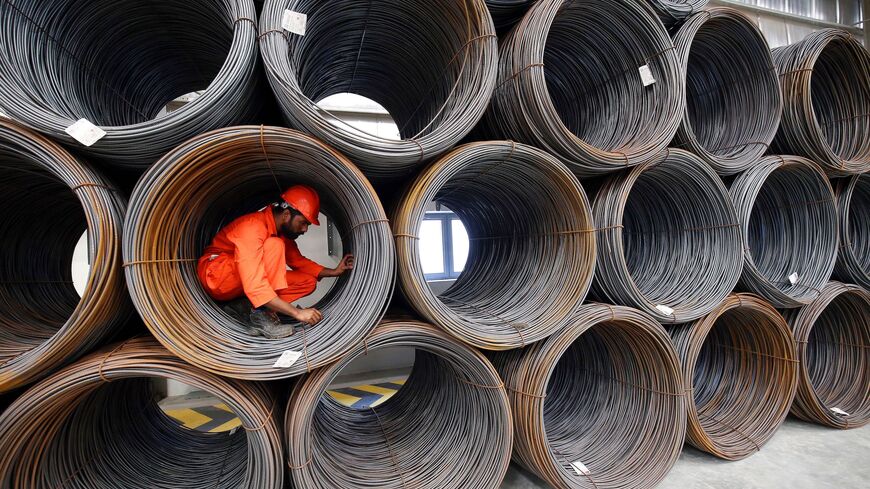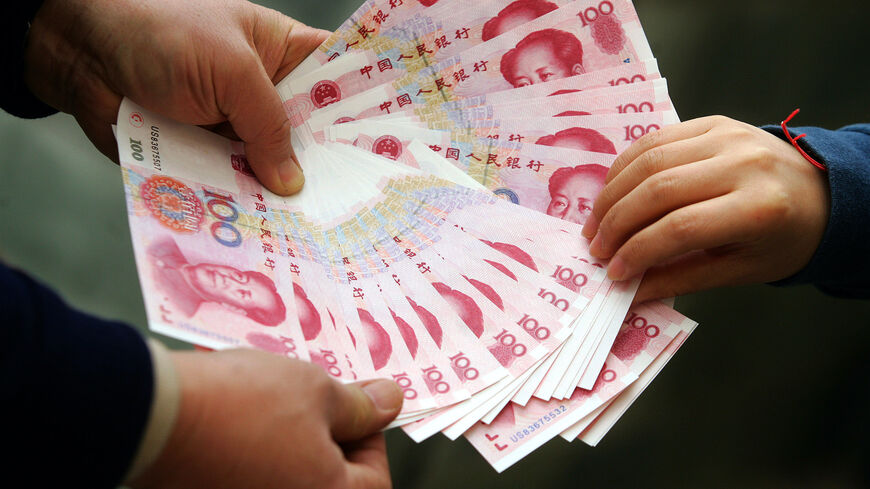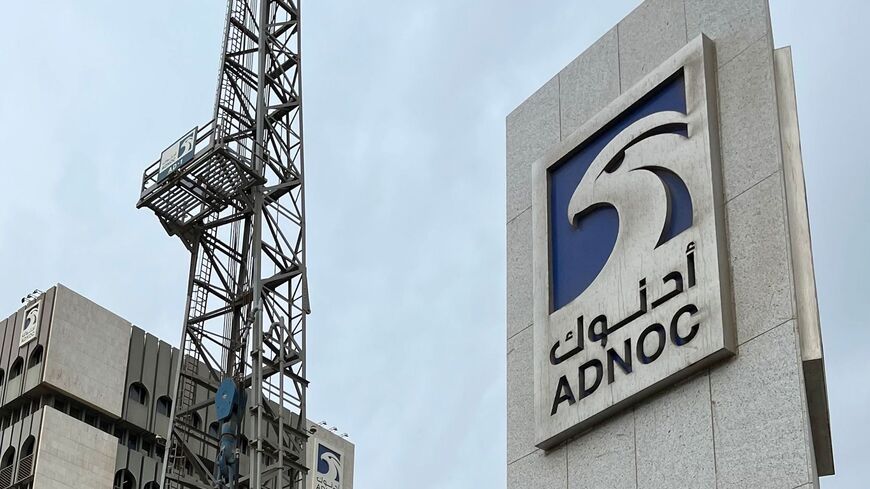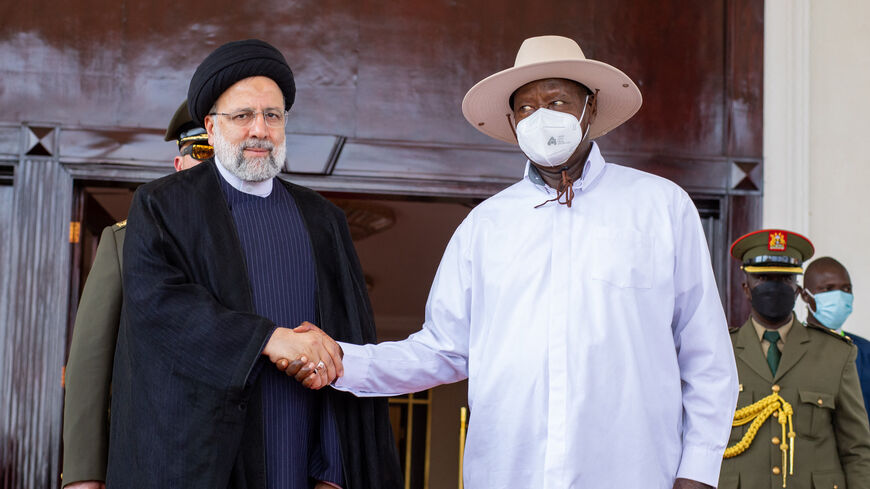UAE's crypto push seeks to draw in high-net-worth individuals
Al-Monitor Pro Members
Sebastian Castelier
Business journalist covering Gulf economies
July 25, 2022
The United Arab Emirates’ strategy to lure in digital-era wealth via the crypto ecosystem was brought to light by the recent “flood of requests” by wealthy Russians to liquidate billions of dollars of crypto via UAE-based crypto exchanges and turn it into cash or properties in Dubai. Emirati developer Damac Properties started accepting Bitcoin and Ethereum to buy properties. The UAE banks on its appealing tax-free luxurious lifestyle to convince them to call the country home.
However, money-laundering risks embedded in the cryptocurrency industry put the UAE on a hot seat, especially as the Financial Action Task Force (FATF) "grey-listed" the country in March 2022. Globally, illicit financial flow concerns might be overplayed as “almost all cryptos” record data about every transaction in a public ledger, said Standard Chartered’s head of crypto research Geoffrey Kendrick. “It is pretty straightforward to work out who does what. [...] Bitcoin and Ethereum are actually more transparent than cash,” he told Al-Monitor.
- Last year, the UAE got its hands on the global cryptocurrency ecosystem’s crown jewel: Changpeng Zhao, CEO of Binance. The world’s largest crypto exchange traded worth over $9.5 trillion in 2021, 67% of all trading volume handled by centralized crypto exchanges worldwide. The arrival of the Chinese-Canadian billionaire could have a transformative impact on the future of the crypto industry in the UAE.
-
“Wherever we go, the industry players do tend to follow," said Zhao, who nicknamed the Gulf federation of seven emirates the “Wall Street of crypto.” In his footsteps, several leading crypto exchanges have announced plans to shift their headquarters to Dubai or set up a regional base there, most notably Singapore-based Crypto.com and Bybit, Seychelles-based OKX, as well as Bahamian exchange FTX and Indian exchange WazirX. Crypto exchanges’ employees, crypto startups and individual traders have already started to follow Binance's move.
-
In 2021, the Dubai Multi Commodities Centre (DMCC), an authority licensing crypto firm, launched the DMCC Crypto Centre and attracted 151 crypto-related companies. In 2022 Q1, 106 crypto and blockchain businesses registered there. “A lot of digital asset firms are also moving to Dubai due to its regulatory framework and ease of business setup,” Ahmed Ismail, a former banker at Jefferies and Merrill Lynch in Dubai who pivoted to crypto, told Al-Monitor. He is the CEO of FLUID, a UAE-based firm that uses AI quant-based models to tackle fragmented liquidity in the crypto industry.
-
The UAE has enacted crypto-friendly regulations to support its crypto push, most notably the Dubai Virtual Asset Regulation Law (VARA), a 2022 law regulating virtual assets in Dubai. It also launched the Dubai Virtual Assets Regulatory Authority to oversee the development of the industry — the framework is deemed “very progressive” by Binance. “It all starts from the top,” commented Ismail, noting that Dubai works “closely” with crypto firms to “create a safe, exacting and transparent ecosystem.” Yet, unlike in Bahrain, where Binance got its first Gulf crypto license in March 2022, the UAE Central Bank does not recognize cryptocurrencies as an official payment method. Some businesses, however, accept crypto payments via a platform that automatically converts them to AED, like grocery delivery YallaMarket and education provider Citizens School.
-
Enticing the cryptocurrencies ecosystem to settle in falls within the UAE’s long-term strategic targets. The Gulf business hub’s historical appetite for traditional global corporations’ white-collar workers has extended to encompass digital-era winners: startups and creative talents. The country launched new residence visa types in 2021 and 2022, such as a visa for jobseekers and a five-year green visa, and expanded the categories of beneficiaries of its golden residence scheme — which allows selected individuals to live and work in the country without requiring a national sponsor for a period of five or 10 years — to include investors, entrepreneurs, scientists and outstanding students, among others. The emirate of Dubai looks to increase its population from 3.3 million to 5.8 million by 2040.
-
Also, Dubai, recognized as the Middle East’s financial hub, wants to switch scale and become a global hub on par with New York, London and Hong Kong — the city is pushing to attract hedge funds and money managers. Therefore, a bet beyond traditional finance could put the country at the center of international finance if crypto and blockchain represent the “future of finance,” as some believe.
“The UAE is ambitious about its role as a financial center and digital assets are at the forefront of financial innovation. The move to attract, develop and regulate the digital ecosystem should help position the country as a leading crypto hub,” Tarek Fadlallah, CEO of Nomura Asset Management’s Middle East unit, told Al-Monitor.
Standard Chartered’s Kendrick believes inviting the industry is a forward-looking bet. “Where the crypto industry is, for me, it is similar to where the tech industry was in the 1990s in terms of number of users and build-up of the infrastructure,” he said. -
Pushing aggressively to attract foreign talents, including in the crypto space, risks causing discomfort among young Emirati graduates. Mira Al-Hussein, an Emirati researcher specializing in Gulf higher education, said in a tweet that official policies “directed at attracting foreign talent” create a “perception of scarcity of local talent.”
-
However, Binance's arrival in the UAE has shown that things are not one-sided. As of April 2022, the company was recruiting over 100 positions in the UAE. A burgeoning crypto industry could be a source of high-quality jobs for the nation’s educated youth.
Scenario 1: The money-supply era "crypto bubble" bursts, wiping out trillions of dollars from markets.
If cryptocurrency valuations are fueled by central banks' massive liquidity injections since the 2008-2009 global financial crisis, then central banks turning off the cash taps could cause a "crypto crash." The explosion of a possible "crypto bubble" would annihilate part of the UAE's efforts to attract the industry. It would also send shock waves throughout its economy as a "crypto euphoria" has drawn in several bankers and financial executives who did a career pivot into the crypto industry.
-
The "bubble burst" scenario should be nuanced, though. First, deflating extreme leverage has already partially happened as Bitcoin's correlation to the tech-heavy Nasdaq has risen in recent months, signaling investors have already liquidated crypto positions in a similar fashion to tech stock to de-risk portfolios. After spiking intraday above $3 trillion in November 2021, crypto total market capitalization plunged to $1 trillion. “I am not sure bubble is the right word. [...] Crypto is a very volatile asset class, so sharp declines when all asset classes go lower makes sense,” Kendrick said.
In the UAE, the crypto industry only accounts for a small fraction of Dubai’s diversified economy, and a larger market crash would not wipe out cryptos that have already entered the UAE economy and have been turned into hard cash or real estate.
Scenario 2: Regulatory competition rises between crypto hubs, and exchanges fly to greener pastures.
Crypto firms have demonstrated agility in jurisdiction-hopping to circumvent regulatory hurdles, which could leave crypto hubs with little room to strictly regulate crypto firms or impose taxes to reap a profit from their presence. For example, Binance, founded in China in 2017, has shifted countries regularly and favored a model of more flexible decentralized regional headquarters over a proper headquarters. Once a go-to destination for the crypto industry, Singapore is falling out of favor after it shut down crypto ATMs and banned advertising crypto. Before it was liquidated during the 2022 crypto crash, Crypto hedge fund Three Arrows Capital planned to ditch Singapore for Dubai. Any pitfall in the UAE could trigger opportunistic crypto firms to leave to greener pastures.
-
The UAE has historically offered investors a reasonably stable business environment, and a state-led crackdown on crypto-related activities is unlikely in the near future. As the years go by, the pool of crypto and decentralized finance (DeFi) talents is likely to increase in the UAE, which would encourage the crypto industry to stick around. On the tax front, the country will start levying a 9% corporate tax, including on crypto firms, but it will continue to honor corporate tax incentives offered to free zone businesses. Companies operating in the Dubai Multi Commodities Centre are exempt from all taxes for 50 years.
Scenario 3: Governments worldwide take a stricter stance on the crypto industry.
The threat posed by cryptocurrencies on fiat currencies and state-controlled money supply force governments to take a tough stance on the industry and make room for central bank digital currency (CBDC). China's central bank declared all cryptocurrency transactions illegal in 2021. US President Joe Biden signed an executive order in March 2022 calling for proposals within 180 days for supporting the introduction of a CBDC system while introducing new regulations to “ensure the responsible development of digital assets.”
-
In the event of a global crackdown on crypto, the UAE would face the challenge of cooperating to maintain its stature. Following Russia’s invasion of Ukraine, Binance said it would block accounts of individuals sanctioned by Western countries.
However, Kendrick said: “I think the regulators are going to take a pragmatic approach,” in part because policymakers have acknowledged “huge benefits” of Web3 solutions, while there is “no real way” to stop crypto because it is decentralized.
Also, similarly to the "bubble bursting" scenario, while stricter regulations on cryptocurrency loom globally, it does not necessarily translate into an exodus of crypto-high-net-worth individuals who moved to Dubai or for them to be penniless.
Despite reputational risks as international scrutiny over illicit flows in the crypto ecosystem increases — the FATF already said the UAE is not doing enough to combat money laundering — the Gulf financial hub pushes forward to capture a slice of the billion-dollars nascent industry. The country has “every piece of the puzzle including the leadership, regulations, free zones, talent and the capital” to become a global crypto hub, believes Amir Tabch, a former banker turned CEO of Abu Dhabi-based blockchain-enabled brokerage firm Securrency Capital. Attracting crypto firms is a wealth play for the UAE, as well as a strategic play to position itself as a hub for blockchain technology and financial innovation.
Sebastian Castelier has been reporting on GCC countries since 2016, with a focus on how the oil-rich region navigates the long-term energy transition economically, socially and politically. He has been a contributor to Al-Monitor since 2019 and writes for various publications, including Haaretz, Al Jazeera, The Independent and Le Temps, among others.
We're glad you're interested in this memo.
Memos are one of several features available only to PRO Expert members. Become a member to read the full memos and get access to all exclusive PRO content.

Already a Member? Sign in
The Middle East's Best Newsletters
Join over 50,000 readers who access our journalists dedicated newsletters, covering the top political, security, business and tech issues across the region each week.
Delivered straight to your inbox.
Free
What's included:
Free newsletters available:
- The Takeaway & Week in Review
- Middle East Minute (AM)
- Daily Briefing (PM)
- Business & Tech Briefing
- Security Briefing
- Gulf Briefing
- Israel Briefing
- Palestine Briefing
- Turkey Briefing
- Iraq Briefing
Premium Membership
Join the Middle East's most notable experts for premium memos, trend reports, live video Q&A, and intimate in-person events, each detailing exclusive insights on business and geopolitical trends shaping the region.
$25.00 / month
billed annually
$31.00 / month
billed monthly
What's included:
Memos - premium analytical writing: actionable insights on markets and geopolitics.
Live Video Q&A - Hear from our top journalists and regional experts.
Special Events - Intimate in-person events with business & political VIPs.
Trend Reports - Deep dive analysis on market updates.
We also offer team plans. Please send an email to pro.support@al-monitor.com and we'll onboard your team.
Already a Member? Sign in


